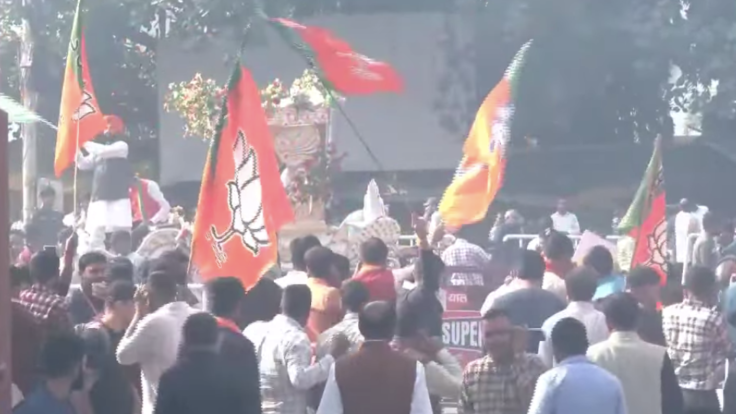Thousands 'Declared Dead': Voter Purge in Bihar Branded 'Quiet Coup' Against Democracy

A massive voter purge in Bihar has sparked political uproar after nearly 6.5 million names were removed from the electoral rolls ahead of the 2025 Assembly election.
The scale of deletions — including more than 2.2 million voters marked 'deceased' — has led opposition parties and civil-society groups to label the exercise a 'quiet coup' against democratic rights.
The Supreme Court stepped in, directing the Election Commission of India (ECI) to release booth-wise deletion lists and disclose specific reasons for every removal, giving millions of anxious citizens a chance to verify whether their vote still exists.
Reports stated that nearly 6.5 million names were removed from the state's electoral rolls during a controversial Special Intensive Revision (SIR).
Supreme Court Questions How 2.2 Million Voters Were Marked 'Deceased'
On 14 August, the Supreme Court ordered the ECI to publish a complete booth-wise breakdown of all deletions, along with each voter's EPIC number and stated reason. Justice Surya Kant questioned how such an enormous number of voters could be declared dead without any booth-level disclosure, saying that public scrutiny was essential to dispelling suspicion.
Justice Joymalya Bagchi added that voters have a fundamental right to know why their names were deleted and insisted that the lists be widely publicised through newspapers, local offices and television. The Court emphasised that no citizen should have to guess whether they have been struck off the rolls.
ECI Defends Its Special Intensive Revision Amid Criticism
The Election Commission maintains that the Special Intensive Revision (SIR) was necessary to remove outdated, duplicate or unverifiable entries. Officials said wrongly deleted voters — including those incorrectly marked 'deceased' — can restore their names by submitting identification such as Aadhaar cards.
According to The Indian Express, Bihar Chief Electoral Officer Vinod Singh Gunjiyal confirmed that all deletion categories, including 'Deceased', 'Permanently Shifted', 'Absent' and 'Duplicate Entry', are now accessible on district portals and the Bihar CEO website. Booth-wise lists can be searched directly through EPIC numbers, a move intended to provide transparency.
Civil-Society Groups Warn of Democratic Damage
The Association for Democratic Reforms (ADR) has sharply criticised the ECI for quietly removing the 'Uncollectable Reason' column, a crucial indicator showing why certain forms couldn't be retrieved. ADR argues that without this detail, independent scrutiny becomes almost impossible.
Data reported by India Today shows:
• 2.23 million voters marked 'deceased'
• 3.63 million listed as 'permanently migrated/untraceable'
• Nearly 700,000 labelled as duplicates
Activists warn the purge disproportionately affects migrants, women and first-time young voters — groups already vulnerable to accidental disenfranchisement.
Final Numbers and Political Fallout
The final electoral roll, released on September 30, lists 74.2 million voters, down from nearly 78 million before the revision, according to Mint.
The Indian Express reported that of roughly 68.6 lakh names deleted, 22 lakh were marked 'dead,' 36 lakh had shifted permanently, and 7 lakh were duplicates.
Opposition leaders, including the CPI (ML), condemned the purge as 'the biggest attack on the Constitution' since independence.
Others, like RJD spokesperson Mrityunjay Tiwari, welcomed partial transparency, noting that the timing coincided with efforts to educate voters about their rights, as reported by The Indian Express.
The Human Impact
For citizens, being suddenly removed from the voter list is more than an administrative issue — it is a direct challenge to their right to participate in democracy. Many discovered their names were missing only when checking online or at their local polling station.
For some, this could mean their participation in the election is blocked unless corrective measures are taken quickly.
The Supreme Court's insistence on transparency and the ECI's assurances of due process may prevent large-scale disenfranchisement. Still, the controversy has already highlighted vulnerabilities in India's electoral system and left voters anxious about whether their rights will be protected in Bihar's critical election.
The controversy highlights the importance of booth-level disclosure when handling millions of names that have been removed. Without detailed explanations for each deletion, allegations of selective targeting and political manipulation easily gain traction.
Transparency has become the deciding factor in whether voters accept the legitimacy of the revised rolls, and analysts warn that the fallout could shape both public confidence and electoral engagement in future.
© Copyright IBTimes 2025. All rights reserved.





















